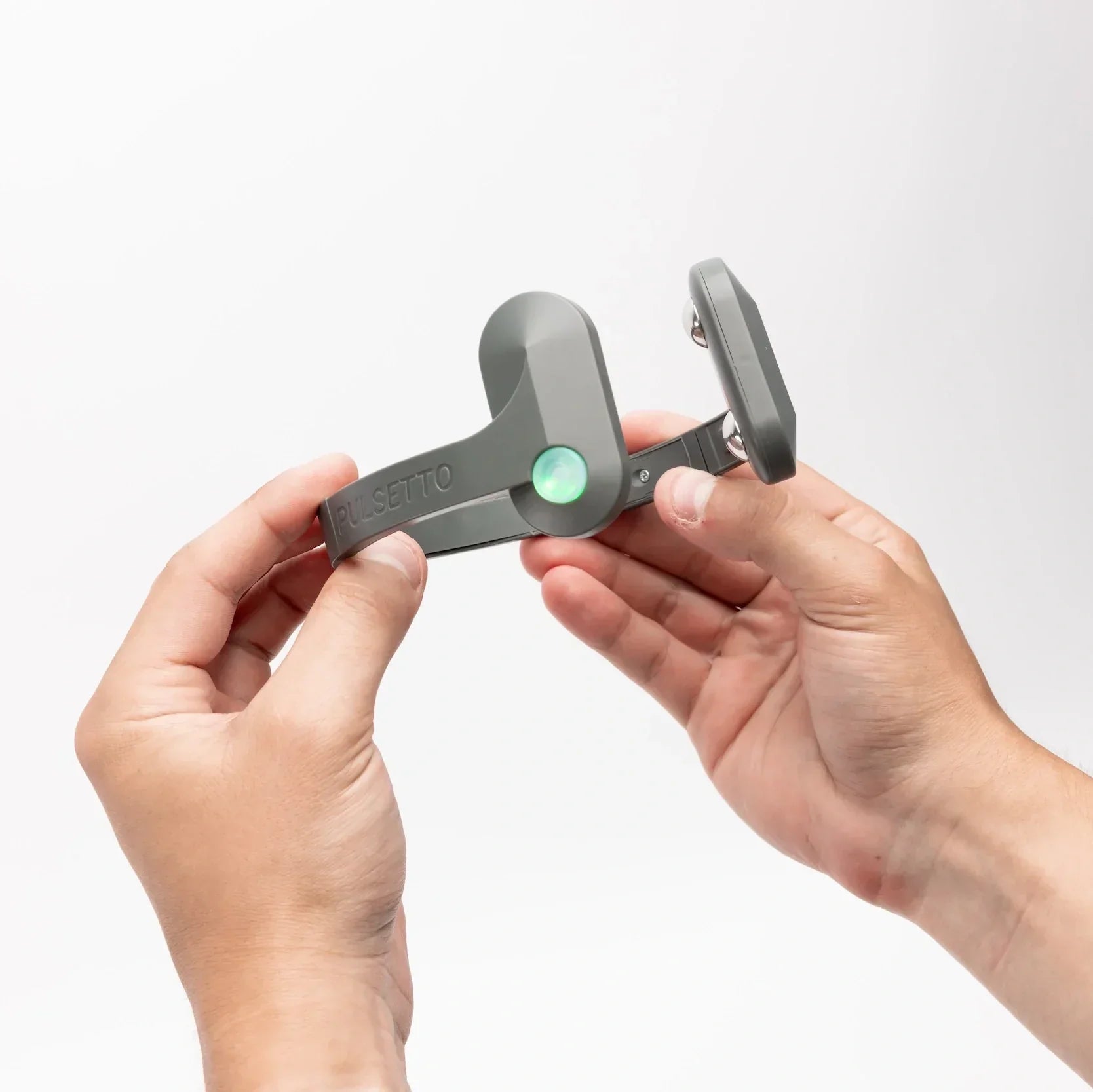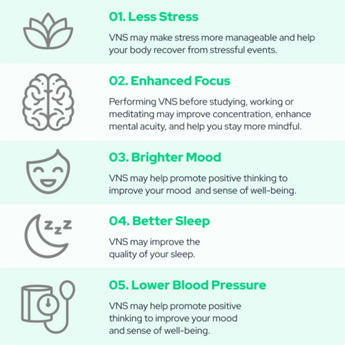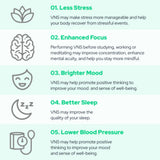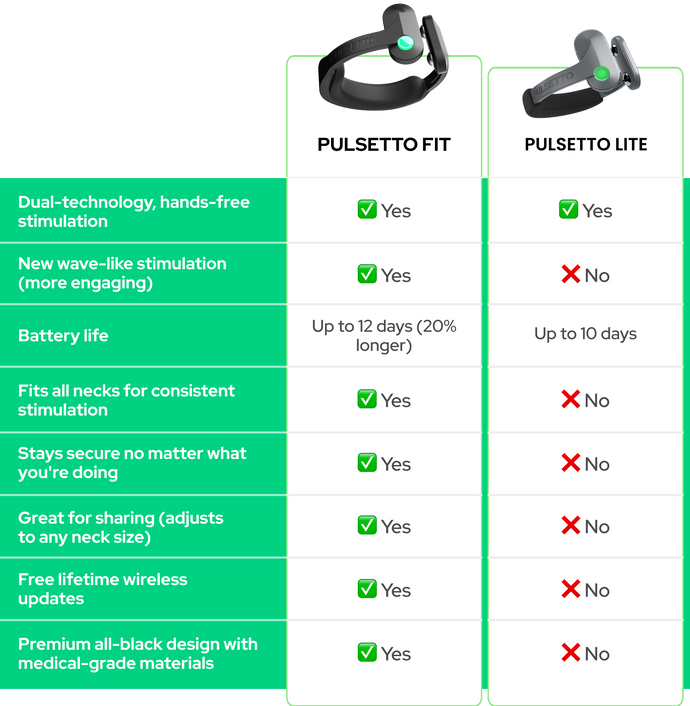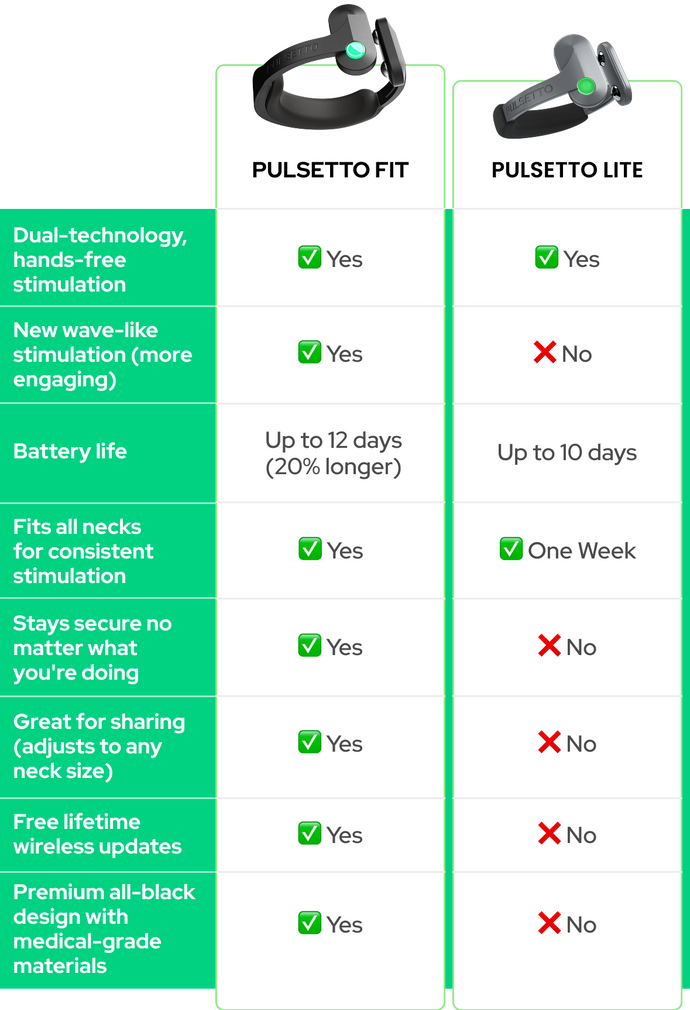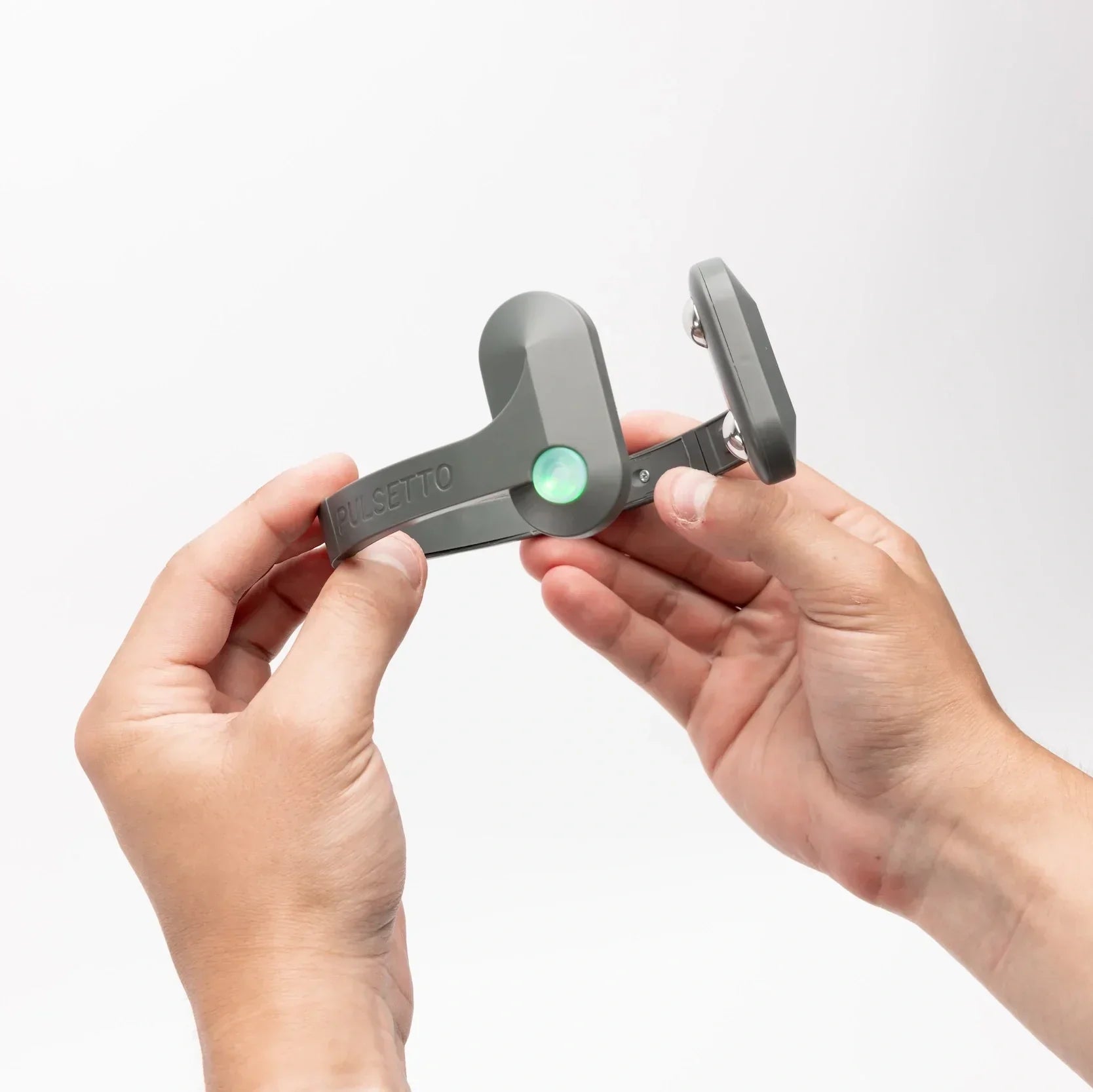Points clés
- Le nerf vague joue un rôle crucial dans la régulation des voies de la douleur qui peuvent affecter l'intensité des migraines et des maux de tête.
- La stimulation non invasive du nerf vague (nVNS) a montré des résultats prometteurs pour réduire la fréquence et l'intensité des maux de tête.
- Des exercices simples du nerf vague peuvent offrir un moyen naturel de stimuler le nerf vague et potentiellement soulager les symptômes de la migraine.
- L'appareil Pulsetto vous aide à vous détendre en moins de 10 minutes en stimulant le nerf vague.
Un nerf vague endommagé ou hyperactif peut-il provoquer des migraines/maux de tête ?
Comprendre la dysfonction du nerf vague
En ce qui concerne les migraines et les maux de tête, la plupart des gens cherchent un soulagement sous forme de médicaments ou de repos. Mais si nous vous disions que la clé pour réduire la fréquence et l'intensité de vos migraines pourrait se trouver dans votre propre système nerveux ? Plus précisément, nous parlons du nerf vague, un chemin de communication entre votre cerveau et de nombreux organes internes.
Le nerf vague aide à contrôler le système nerveux parasympathique, qui gère vos réponses de relaxation. Mais lorsqu'il ne fonctionne pas correctement, il peut entraîner de nombreux problèmes, y compris des migraines. La dysfonction peut résulter de dommages physiques, d'inflammation ou même de stress chronique.
|
Pulsetto : stimulateur révolutionnaire du nerf vague Réduisez le stress et l'anxiété en seulement 4 minutes avec Pulsetto, le stimulateur innovant du nerf vague conçu pour biohacker votre système nerveux parasympathique. Cliniquement prouvé et certifié FCC, Pulsetto a aidé 86 % des utilisateurs à se sentir plus calmes et moins anxieux en deux semaines. Noté 4,5/5 par plus de 20 137 clients. Profitez d'avantages tels que la livraison mondiale gratuite, une garantie de remboursement de 30 jours, une garantie de 2 ans et des matériaux recyclables. |
Impact de la santé du nerf vague sur les migraines
Alors, comment la santé du nerf vague affecte-t-elle exactement les migraines ? Eh bien, ce nerf influence les niveaux d'inflammation, souvent élevés lors d'une migraine. En calmant l'activité du nerf, vous pourriez réduire la réponse inflammatoire et, par conséquent, la gravité de vos migraines.

Souffrir d'une migraine peut être débilitant, avec une douleur intense, une sensibilité à la lumière et des nausées.
Vous vous demandez peut-être comment savoir si votre nerf vague ne fonctionne pas correctement. Faites attention à des signes tels que :
- Problèmes digestifs
- Difficulté à avaler
- Rythme cardiaque anormal
- Maux de tête ou migraines fréquents



